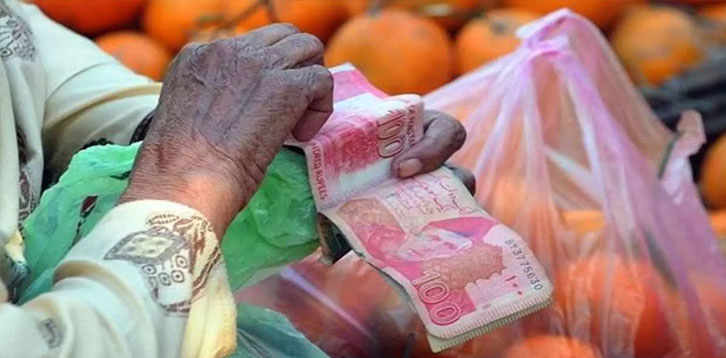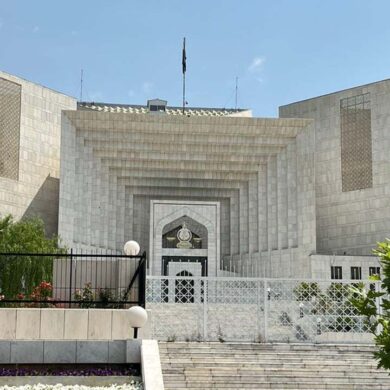Pakistanis are facing heightened economic pressure as the weekly inflation rate surged by 0.30 percent, a jump from 0.11 percent the previous week and 38.28 percent from the same period last year.
This data, released by the Pakistan Bureau of Statistics (PBS) for the seven-day period ended October 12, paints a grim picture for the country’s economic landscape.
The spike in the sensitive price indicator (SPI) inflation is primarily attributed to the escalating costs of essential items.
Electricity charges for Q1 soared by 8.59 percent, while tomatoes experienced a staggering increase of 6.28 percent. Eggs followed closely with a 3.48 percent rise, alongside notable upticks in the prices of salt (2.75 percent), garlic (1.04 percent), and various other commodities.
These hikes have placed a severe strain on households, forcing many to compromise not only on the quality but also the quantity of their meals.
On the flip side, some relief came in the form of reduced prices for select items. Sugar saw a decline of 4.47 percent, and pulses like gram (2.75 percent) and moong (2.44 percent) also experienced marginal decreases. However, these reductions failed to offset the overall impact of the rising prices, leaving families struggling to make ends meet.
The SPI for the week was recorded at 282.86 points, up from 282.00 points the previous week and significantly higher than the 204.55 points recorded during the same period in 2022. This index, compiled meticulously by the PBS, collects data from 51 essential items across 50 markets in 17 cities of Pakistan.
Notably, the inflationary burden has disproportionately affected lower and middle-income groups. Those spending up to Rs17,732 faced a YoY SPI of 36.64 percent, while the figure stood at 39.88 percent for those spending between Rs17,733-22,888. Even higher-income brackets were not spared, with SPI reaching 34.33 percent for those spending above Rs44,175. These statistics highlight the pervasive impact of inflation, touching every economic stratum.
The rise in prices has hit even the most basic kitchen essentials. A stark example is the exorbitant cost of ginger, an integral ingredient in Pakistani cuisine. Vendors are forced to charge astronomical rates, with prices skyrocketing to Rs1,200/kg in some areas. Similarly, the price of garlic, another staple, has surged, leaving consumers grappling with unprecedented expenses.
Traders, too, are feeling the pinch as global trade dynamics fluctuate. Spices like Indian cardamom, once reasonably priced, now cost a staggering Rs10,000/kg due to trade disruptions and rupee devaluation. These challenges have led shopkeepers to reduce the variety of goods they offer, further limiting choices for consumers.
In the face of this economic adversity, Pakistani households find themselves making difficult choices, compromising on both their meals and the quality of ingredients.



